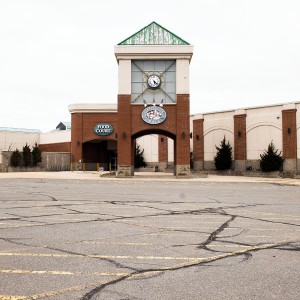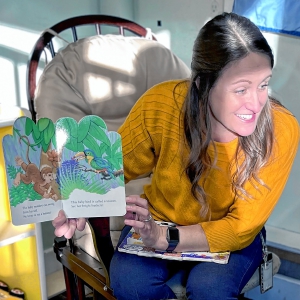Opinion: Being blind doesn’t mean you can’t see
| Published: 10-01-2023 6:30 AM |
Jean Stimmell, retired stone mason and psychotherapist, lives in Northwood and blogs at jeanstimmell.blogspot.com.
Being blind doesn’t mean you can’t see.
I had an epiphany reading about how a blind man could still see — and, surprisingly, in a more profound way. Stephen Kuusisto enlightened me about this in his memoir, “Planet of the Blind,” as described by the poet Mark Doty.
“Kuusisto describes a moment in Grand Central Station when he and his guide dog have just gotten themselves lost in the great urban hive of transport. Steve sees a dark, suggestive blur of shapes and colors…His dog is new to the intricate passageways of the station, crowded with ranks of commuters… Steve could reasonably be terrified. Instead, he reports this as an occasion of pleasure, a perceptual adventure; both he and his companion animal are exhilarated, and having, as we say, the time of their lives.”
My revelation was that while blindness can indeed be an occasion for adventure, so can growing old!
Like the suggestive blur on Steve’s retina in Grand Central Station, the accelerating cacophony of incoming images I encounter each day arouses me, even though they flash by too quickly for my old mind to read the fine print. If I don’t panic at this barrage of strangeness, if instead, I take a deep breath, then the sum of all this chaos can sometimes feel exciting and alluring, suggesting that something bigger than we can imagine is about to unfold.
Samuel Beckett, perhaps the most famous playwright of the 20th century, confessed to experiencing something similar about growing old during a 1987 Paris Review interview with Lawrence Shainberg:
“It’s a paradox, but with old age, the more the possibilities diminish, the better chance you have. With diminished concentration, loss of memory, obscured intelligence — what you, I suspect, would call ‘brain damage’ — the more chance there is for saying something closest to what one really is. Even though everything seems inexpressible, there remains the need to express. A child needs to make a sand castle even though it makes no sense to him. In old age, with only a few grains of sand, one has the greatest possibility.”
Article continues after...
Yesterday's Most Read Articles
 Hopkinton tries to nab out-of-town trash bandits
Hopkinton tries to nab out-of-town trash bandits
 UNH faculty and students call on university police chief to resign following his alleged assault on a student
UNH faculty and students call on university police chief to resign following his alleged assault on a student
 Steeplegate project to reopen to public comment as developer seeks to reduce required parking
Steeplegate project to reopen to public comment as developer seeks to reduce required parking
 Monitor Way developer seeks $4.67 million from city for proposed new road
Monitor Way developer seeks $4.67 million from city for proposed new road
 Northeast Coffee Festival comes to Concord this weekend
Northeast Coffee Festival comes to Concord this weekend
 NH Senate panel frowns on bill to ease vehicle inspection requirements
NH Senate panel frowns on bill to ease vehicle inspection requirements
Beckett was seventy-four years old at the time. I’m 78. Perhaps we are discovering that putting words on things can keep us from envisaging a greater truth. Or, as the artist Robert Irwin has summed it up: “Seeing is forgetting the name of the thing one sees.”
Why?
Because when I name something, I separate it from what comes before and after. Doing so puts the multiplicity of ongoing life on pause, turning it into a frozen fact. I’ve witnessed the consequences. Putting words on my awe at encountering a fluttering, kaleidoscopic butterfly, removes her from the immediacy of the now, pinning her forever, static and faded, in the museum of my mind.
Young children, on the other hand, have an uncanny intuition about the true nature of the cycles of life because they have yet to be separated from the rhythms of the universe. My son, when he was about four, declared with utter conviction something that mystified me at the time: “When I get big, you will become small again.”
Now I see the truth of his prediction.
]]>


 Opinion: Invest in child care for NH families
Opinion: Invest in child care for NH families Opinion: The slippery slope that should scare us? The trend of legislatures getting involved in personal medical decisions.
Opinion: The slippery slope that should scare us? The trend of legislatures getting involved in personal medical decisions. Opinion: Protecting NH from PFAS
Opinion: Protecting NH from PFAS Opinion: Thank goodness for New Hampshire teachers
Opinion: Thank goodness for New Hampshire teachers
